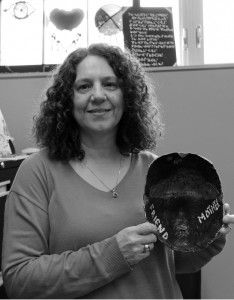Smudging good for patients, respect even better

By Donna Faye
THUNDER BAY – In 1995 Sandra Cornell began volunteering for cancer care and other groups working to improve Aboriginal health.
Since then, she has seen a number of encouraging changes.
“Some of the stories I have heard about the experiences of Aboriginal people in the health care system were heartbreaking,” says Cornell, a citizen of Fort William First Nation.
“Many were not being cared for appropriately. Now people are talking. There is a set of steps to take if you’re having issues. Patient advocacy has started and there are Aboriginal leads and navigators now in the hospital. I see a difference in the way people are being cared for starting to take place.”
Cornell is one of 25 members of the Aboriginal Advisory Committee at Thunder Bay Regional Health Sciences Centre whose purpose is to provide a voice for Aboriginal culture, values, practices and traditions in patient and family care. Members advise administration about the priorities of Aboriginal patients and families and offer suggestions for improving their experience.
A registered nurse, Cornell is the manager of Lakehead University’s Native Nurses Entry Program, a nine-month preparatory program for individuals of Aboriginal descent (status, non-status, Metis or Inuit), designed to provide the necessary skills and academic preparation required for entrance and successful completion of the four-year nursing degree program. In addition to managing the program, she also teaches the Communication Course.
The Native Nurses program began in 1987 as a result of Nishnawbe-Aski Nation chiefs joining with Lakehead University to advocate for Aboriginal learners, especially those wanting to pursue nursing studies.
“The First Nation Chiefs felt it was important to have Aboriginal nurses working in the communities because they are familiar with the history, culture and traditions of the Aboriginal people,” says Cornell.
“A lot of non-Aboriginal nurses come to work in the communities but they don’t end up staying, so in some cases, that means care is inconsistent and fragmented. There are complex health and social issues and Aboriginal nurses can also incorporate traditional health into their practice.”
Cornell graduated from the program and went on to complete the Honours Bachelor of Science in Nursing degree program.
“I am very thankful this program was available to me when I was a student,” she says. “I wasn’t ready for university when I started. I had two babies. My children provided me the incentive to further my learning.”
After graduation, she worked in nursing for 20 years in various Robinson-Superior Treaty First Nations and held a number of positions at Dilico Anishinabek Family Care, including Community Health Nurse, Community Health Manager and Health Director.
Carmen Blais, Aboriginal Engagement Lead at the Regional Health Sciences Centre, says Cornell brings a valuable perspective to the Aboriginal Advisory Committee.
“As an experienced nurse, Sandra appreciates the complex health needs of our Aboriginal patients and as an educator, she understands the needs of Aboriginal nursing students and how best to integrate them into health care organizations.”
While Cornell says the delivery of health care to Aboriginal people has improved, there is still work to be done and room for growth.
“Many of the hospital’s leaders have been excellent,” she says.
Patients at the hospital now have access to a Healing Garden and traditional practices like smudging, but Cornell says what is even more important is showing respect.
“Every patient needs to be respected, treated like everybody else. Treat each patient with the same care that you would want for a member of your own family.”
Sandra Cornell, Registered Nurse, manager of Lakehead University’s Native Nurses Entry Program, and member of the Aboriginal Advisory Committee at Thunder Bay Regional Health Sciences Centre.


